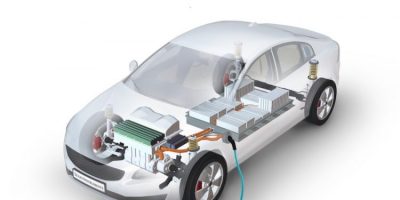Reference design accelerates HEV/EVs battery monitoring design
Reference designs and analogue circuits have been announced by Texas Instruments to speed time to market for battery management of hybrid electric vehicles and electric vehicles (HEVs and EVs).
The reference designs for battery management and traction inverter systems, along with the analogue circuits which have advanced monitoring and protection features to help reduce carbon dioxide emissions, enable HEVs and EVs to drive farther and longer.
Scalable across six to 96-series cell supervision circuits, the battery management system (BMS) reference design features the BQ79606A-Q1 precision battery monitor and balancer. The reference design implements the battery monitor in a daisy chain configuration to create a reliable system design for three- to 378-series, 12V to 1.5kV lithium-ion battery packs.
The integrated BQ79606A-Q1 monitors temperature and voltage levels and helps maximise battery life and time on the road. The battery monitor features safe-state communication that helps system designers meet requirements up to Automotive Safety Integrity Level D (ASIL D), defined by the ISO 26262 road vehicles standard.
Many kW of power filtering through an electric vehicle’s traction inverter and batteries mean that high temperatures could potentially damage expensive and sensitive powertrain elements. Thermal management of the system is crucial to vehicle performance, as well as protecting drivers and passengers.
To protect powertrain systems such as a 48V starter generator from overheating, Texas Instruments has introduced the TMP235-Q1 precision analogue output temperature sensors. This low-power, low-quiescent-current (9.0 microA) device provides high accuracy (±0.5 degrees C typical and ±2.5 degrees C maximum accuracy across the full operating temperature from -40 to +150 degrees C) to help traction inverter systems react to temperature surges and apply appropriate thermal management techniques.
The TMP235-Q1 temperature sensing device joins the recently released UCC21710-Q1 and UCC21732-Q1 gate drivers to create smaller, more efficient traction-inverter designs. According to Texas Instruments, these devices are the first isolated gate drivers to integrate sensing features for insulated-gate bipolar transistors (IGBTs) and silicon carbide (SiC) field effect transistors (FETs), enabling greater system reliability in applications operating up to 1.5kV RMS and with superior isolation surge protection exceeding 12.8kV with a specified isolation voltage of 5.7kV. The devices also provide fast detection times to protect against over-current events while ensuring safe system shutdown.
To power the new gate drivers directly from a car’s 12V battery, Texas Instruments has released a new reference design demonstrating three types of IGBT/SiC bias-supply options for traction inverter power stages. The design consists of reverse-polarity protection, electric-transient clamping and over- and under-voltage protection circuits. The compact design includes the new LM5180-Q1, which is a 100V, 1.0A synchronous step-down converter with very low 10 microA typical standby quiescent current.




